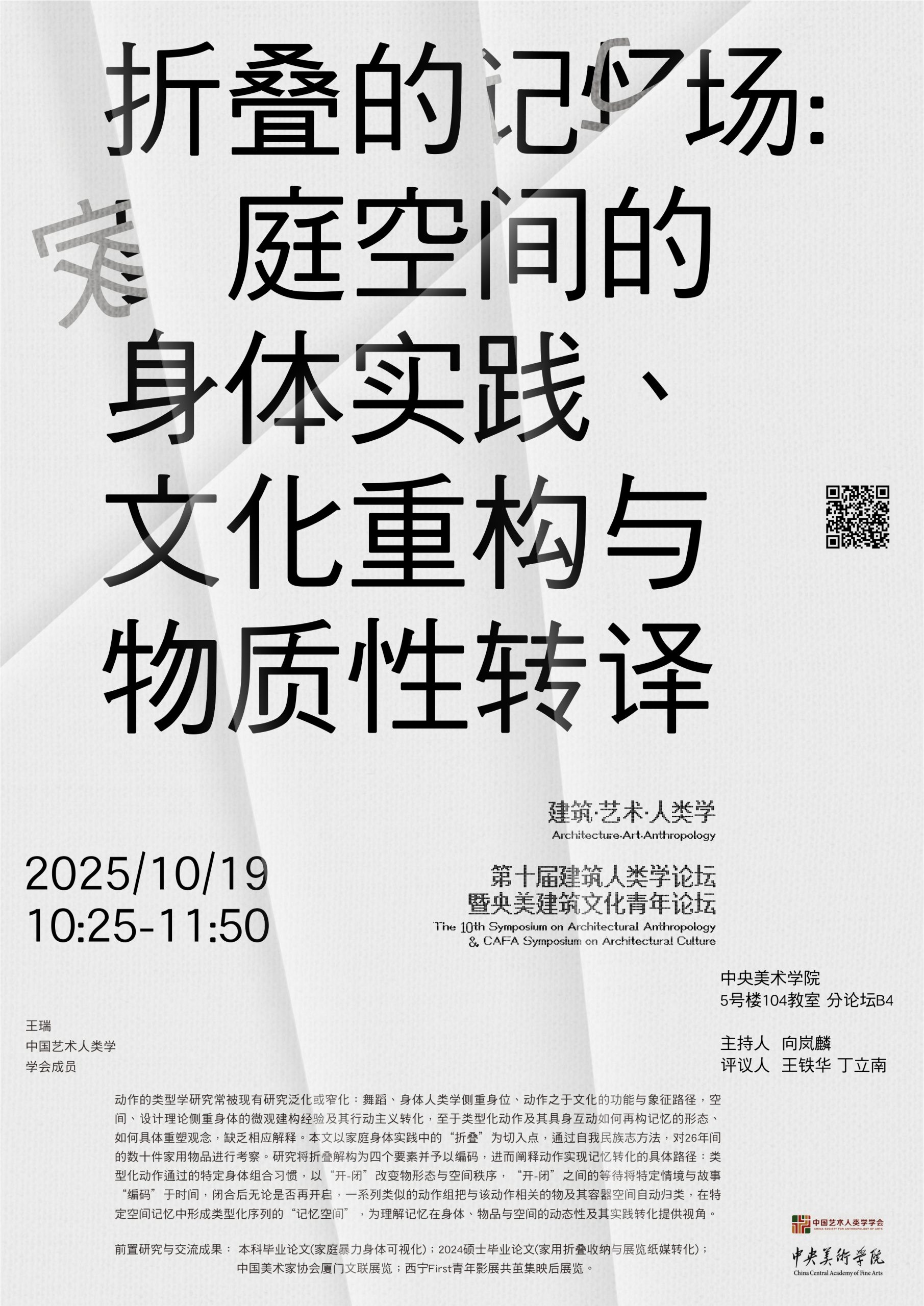折叠的记忆场:家庭空间的身体实践、文化重构与物质性转译
The Memory Field of Folding: Bodily Practice, Spatial Restructuring, and Material Translation in Domestic Space
ORAL PRESENTATION
Abstract In the dual process of contemporary urbanization and social atomization, the function of domestic space as a carrier of memory is being challenged. Traditional research often approaches the topic from macro-structural or symbolic perspectives, partly ingroing to adequately engage with the bodily and material interactions in everyday practice. This study focuses on “folding” as a daily domestic practice, employing autoethnography to analyze more than 200 household objects from 1998 to 2024. It examines how folding reconstructs memory space in the home through four dimensions: body, material, time, and social other. The results show that folding is not only a technique for organizing space, but also constitutes a coding mechanism in the form of “memory field.” On a functional level, it controls spatial visibility and maintains everyday order through self-folding and “interface-folding”, and on a symbolic level, its bodily trajectories facilitate the transmission of intergenerational knowledge and carry emotional ties over time, forming a bodily syntax within the family. The study further employs curatorial design to translate the “memory field” extracted from folding into operable exhibition booklets and display formats. This demonstrates the narrative potential of “home as exhibition.” Methodologically, the study reveals the relationship between domestic memory and material practice, and for practical level, it offers a reusable pathway for design related to community memory culture.

组织
Organiser
School of Architecture, Central Academy of Fine Arts
供稿
Texts
Wang Rui
预印本
Preprint
Academia.edu
Researchgate.net
时间戳
Time Stamp
2025/10/19